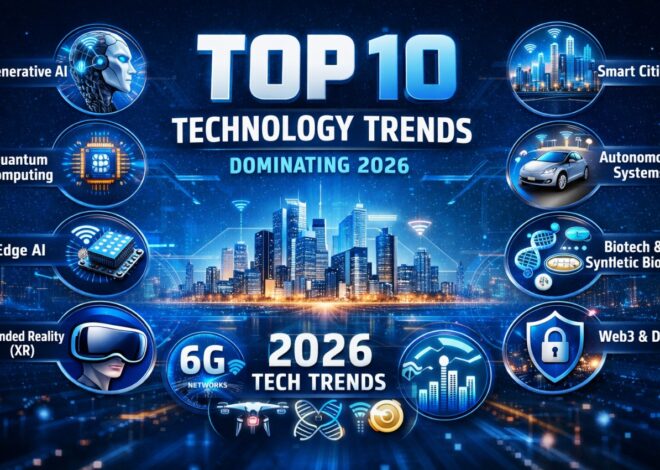
Global Push for AI & Data Governance: Balancing Innovation and Regulation
In the computerized age, artificial intelligence (AI) has developed as one of the most transformative innovations reshaping businesses, economies, and social orders. As AI applications—from generative instruments to independent systems—proliferate, a developing worldwide agreement is shaping around the require for vigorous AI and information administration.
This development points to guarantee AI is created and conveyed dependably, morally, and with regard for human rights, protection, and law based values. The worldwide thrust for AI and information administration is no longer fair a specialized concern—it’s a geopolitical, financial, and societal imperative.
Why AI and Information Administration Matter
AI frameworks are driven by information. They analyze tremendous sums of individual, commercial, and now and then delicate data to convey experiences, make choices, or connected with people. Without legitimate administration, these frameworks can sustain predisposition, attack protection, abuse human rights, and disturb law based teach. The stakes are tall: facial acknowledgment program utilized in law authorization, algorithmic decision-making in healthcare or fund, and AI-generated deception can all have far-reaching consequences.
Governance systems are fundamental to relieve these dangers. They characterize the rules, obligations, and moral boundaries for how information is collected, utilized, and secured, and how AI ought to be outlined, prepared, and inspected. Administration too advances straightforwardness, responsibility, and believe in AI systems—a prerequisite for broad adoption.
The Rise of National and Territorial Frameworks
Governments around the world are hustling to set up arrangements and controls to oversee AI and information practices.
European Union (EU):
The EU has taken a authority part with its point of interest AI Act, passed in 2024. The Act categorizes AI applications based on chance (e.g., negligible, restricted, tall, and unsatisfactory) and forces stricter prerequisites for high-risk frameworks. It orders straightforwardness, human oversight, and information quality checks. The Common Information Security Control (GDPR) too remains a foundation of worldwide information security, affecting arrangements well past Europe.
United States:
In the U.S., AI administration has taken a sector-specific and agency-led approach. President Biden’s Official Arrange on Secure, Secure, and Dependable AI (2023) commands government offices to survey the dangers of AI in their operations and advance dependable utilize. Organizations like the National Founded of Benchmarks and Innovation (NIST) have created deliberate AI hazard administration systems. In any case, a comprehensive government AI law is still beneath debate.
China:
China’s methodology is state-driven and intensely centered on AI authority. It has presented directions on algorithmic suggestion frameworks, deepfakes, and information security—especially beneath its Individual Data Security Law (PIPL) and Information Security Law. China equalizations advancement with solid state oversight, frequently emphasizing social agreement and national security.
India:
India is progressing a advanced economy whereas hooking with administrative crevices. It as of late passed the Computerized Individual Information Assurance Act (2023), pointing to ensure client information and engage controllers. India’s AI procedure centers on “AI for All,” prioritizing comprehensive development, instruction, and moral development.
Africa and Latin America:
Countries like Brazil, South Africa, and Kenya are creating AI arrangements that center on consideration, financial advancement, and information sway. They confront the double challenge of cultivating development whereas building organization capacity to direct progressed technologies.
The Part of Worldwide Organizations
Multilateral organizations are basic in advancing worldwide participation on AI and information governance.
United Countries (UN):
The UN propelled a High-Level Admonitory Body on AI to direct part states on mindful AI utilize. The UN’s thrust incorporates standards for straightforwardness, consideration, and arrangement with the Maintainable Advancement Objectives (SDGs).
OECD:
The Association for Financial Co-operation and Improvement (OECD) discharged AI standards in 2019, emphasizing human-centered values, straightforwardness, and responsibility. Over 40 nations have received them as a establishment for national policies.
G7 and G20:
The G7’s Hiroshima AI Prepare looks for to adjust equitable countries on dependable AI improvement. In the interim, the G20 has examined moral AI and information interoperability, especially to bridge the advanced separate between created and creating nations.
World Financial Gathering (WEF):
The WEF has spearheaded activities like the Worldwide AI Activity Collusion and systems for dependable AI, making a difference enterprises embrace moral AI administration adjusted with worldwide standards.
Corporate and Respectful Society Responses
The private segment is progressively grasping AI administration as portion of its operational and moral systems. Tech mammoths like Microsoft, Google, and IBM have discharged AI morals standards, made inside administration sheets, and embraced straightforwardness instruments. Microsoft’s Capable AI Standard and Google’s AI Standards have impacted industry best practices.
Yet pundits contend that self-regulation is deficiently. Numerous companies proceed to create effective models without unveiling key points of interest such as preparing information, vitality utilize, or chance evaluations. The rise of “foundation models” like GPT-4 and Claude has raised questions approximately concentration of control, openness, and AI safety.
Civil society groups—like the Algorithmic Equity Association and Get to Now—have played an fundamental guard dog part, uncovering algorithmic hurts, pushing for straightforwardness, and pushing for human rights-centered AI. Their weight has impacted enactment and open opinion.
Key Challenges Ahead
Despite advance, noteworthy challenges stay in worldwide AI and information governance:
- Fragmentation: National and territorial laws shift broadly. A company working over locales must comply with numerous, in some cases clashing rules. There’s a squeezing require for interoperability and harmonization of standards.
- Enforcement: Administrative bodies frequently need the specialized skill or assets to implement rules viably. Without vigorous oversight, controls chance getting to be symbolic.
- Bias and Incorporation: AI frameworks regularly reflect the predispositions in their preparing information. Guaranteeing differing qualities, decency, and availability remains a challenge, particularly in worldwide South contexts.
- Open vs. Closed Models: The talk about proceeds over whether AI models ought to be open-source (advancing development and straightforwardness) or restrictive (constraining abuse and ensuring IP). This has suggestions for competition and national security.
- Geopolitical Pressures: The AI race between the U.S. and China, and contrasting sees on advanced rights and censorship, complicate endeavors for worldwide consensus.
The Way Forward
A facilitated, worldwide approach is vital to guarantee AI benefits humankind whereas minimizing dangers. Key steps include:
- Creating interoperable systems: Worldwide understandings ought to center on adjusting measures, particularly for high-risk applications.
- Investing in administrative capacity: Governments must finance educate that can review AI frameworks, explore hurts, and direct policy.
- Promoting AI proficiency and consideration: Open mindfulness, instruction, and interest are basic for equitable AI governance.
- Supporting open inquire about: Straightforward, peer-reviewed AI investigate cultivates security, responsibility, and innovation.
AI administration is not a one-time project—it’s a ceaseless, versatile handle. As innovation advances, so must our collective instruments for directing it.
Conclusion
The worldwide thrust for AI and information administration speaks to a turning point in the advanced age. It reflects a developing acknowledgment that whereas AI holds gigantic guarantee, it must be molded by shared values, vigorous oversight, and comprehensive exchange.
As nations, companies, and communities explore this complex territory, the objective ought to be clear: to tackle AI for the common great whereas ensuring the rights and nobility of all. As it were at that point can we guarantee a future where innovation serves humankind, or maybe than the other way around.


